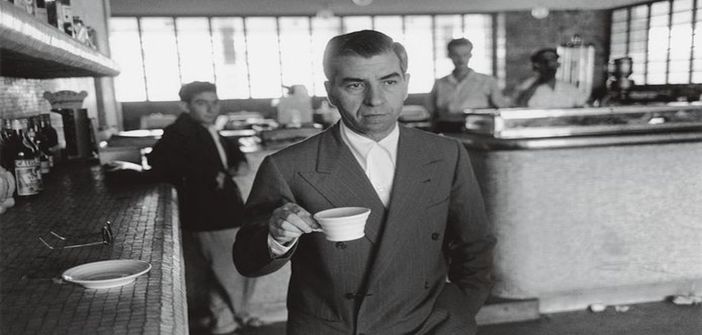The godfather had Joe Masseria and Salvatore Maranzano assassinated. These murders marked the end of the gang wars and the rule of the old bosses. In 1929, he brought together all the mafia godfathers from around the country in Atlantic City. The mob summit where Luciano dictated the new rules. At the time, there were approximately Italo-American gangs. He gathered them and decided that the best thing for business would be peace. Luciano also instigated practices from Sicily and Italy.
An initiation ceremony, a blood pact. The basic rule would be omerta. That no one would ever cooperate with the authorities. The most important principle he imposed on this new American mafia was that the survival of the organization came before anything else. The individual no longer mattered.
To end internal conflict, Lucky Luciano proposed establishing a commission, a central command body, to resolve internal conflicts and distribute roles among the different clans that composed it. Without a doubt, he was the man who built the Mafia organization as we know it.
A large-scale enterprise with rules and codes to be followed above all else. It was at this moment that the Italo-American mafia was born, calling itself “Cosa Nostra” (Our Thing). The organization is governed by the law of silence, omerta. A boss was thus appointed in each large city in the United States, except in New York, where there are five Families whose organization is more powerful.
The five Families of the Big Apple are:
– Lucchese
– Genovese
– Gambino
– Bonanno
– Colombo
With the end of Prohibition in 1933, the Italo-American mafia found new ways to diversify the organization’s businesses. Illegal gambling and usurious loans became their new playground. Construction, transportation, and textiles were also infiltrated by criminals. All sectors were infiltrated through worker unions. Instead of using weapons, they presented business leaders with an ultimatum.
“We’re going to strike; if you don’t want a strike, you’ll have to pay us.” From street criminals to wealthy entrepreneurs, mobsters became respectable men.
Time magazine would rank Lucky Luciano among the main empire-builders of the twentieth century. However, in 1936, Luciano was sentenced to 30 years in prison for his prostitution network. The end of the reign was announced for the “capo dei capi” (the godfather of godfathers).
But the Second World War would offer a new opportunity to the organization. On December 7, 1941, the surprise attack on Pearl Harbor by Japanese naval air forces forced the United States into war. In New York, numerous sabotage attacks were carried out in the city’s port. The Americans were very worried about the docks. One of the main reasons was that about half of the people working there were Italo-Americans. There were many Mussolini sympathizers.
Lucky Luciano made “a deal” with American intelligence services, in which he ensured security on the docks and warned of possible espionage. He gave instructions to avoid work stoppages and ensure everything proceeded calmly. At the end of the war, he was released from prison in 1946 for services rendered to the nation. His release was conditional. Luciano had to return to Italy and never set foot in the United States again, under the threat of spending the rest of his days in prison. His exile did not prevent his reign from continuing, establishing an international drug trafficking network.
This new, lucrative area for the American mafia would be challenged in 1957 when Congress passed a new law punishing drug trafficking with sentences of 20 to 30 years in prison. In Italy, and more precisely in Palermo, Lucky Luciano requested the formation of a commission similar to the one established 30 years earlier on the new continent.
Drug trafficking would give rise to connections between Sicilian and American mafias. The repentant mobster Gaspare Mutolo told Italian journalists that:
“The mafioso served as a peacemaker. When one needed a job, or when there was a problem, one wouldn’t go to the police but to the Mafia. That’s why I speak of it positively.”
A new era was opening in the United States in the conflict between the mafia and the American state. Following his election on November 8, 1960, President John Fitzgerald Kennedy appointed his brother Robert Francis Kennedy, known as “Bobby,” as Attorney General. This is the highest position in the U.S. justice system. He suspected a link between unions and the mafia. He forced the FBI to take action against the criminal organization, even proving the existence of the mafia which had been ignored by many. The assassination of John F. Kennedy on November 22, 1963, compelled him to step down from his role as Attorney General. After this tragic event, no one encouraged Hoover’s FBI to investigate further.
The Golden Age of the Mafia still had bright days ahead. Joseph Valachi’s revelations proved the presence of the Cosa Nostra to Bobby Kennedy and allowed Mario Puzo to publish his bestseller “The Godfather” in 1969. In his writing, the protagonist fares quite well. He is a loving and virtuous family man. He is judicious in criminal matters and integrous enough to oppose drug trafficking. A foreshadowing of the damage this trade would bring to the organization.


